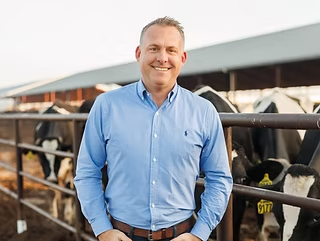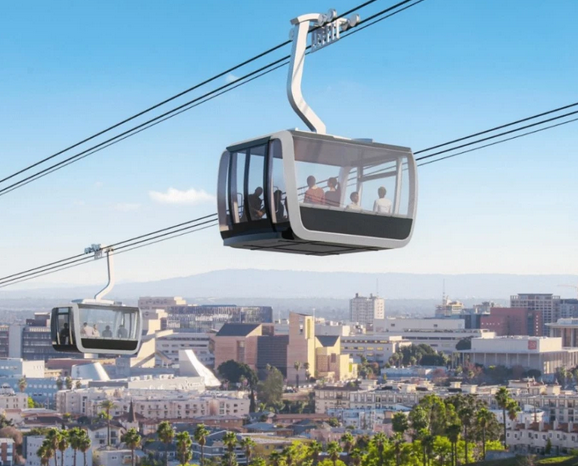The California legislative session isn't quite over yet. Although the deadline for most bills passed in September, and the election has changed some local representation, there is still one more issue remaining in front of current legislators: transportation funding. The Transportation Special Session has until November 30 to pass a bill to fix what everyone seems to agree is a crisis.
Except that getting all the different factions to agree on a solution is not so easy. Senator Jim Beall, chair of the Senate Transportation Committee, has been working to find agreement among senate and assembly colleagues on a way forward. “Everyone knows there is a deadline,” he says. “But the reality is we must bring forth a bill that can pass. I’m working hard to accomplish that.”
Senator Beall has proposed a bill, S.B.X1-1, that has something in it for everyone, but it has been a hard sell. The bill would raise gasoline and diesel taxes—as well as other license and registration fees—which means it needs a two-thirds majority to pass. That automatically brings opposition from Republican legislators, even though many California voters are clearly willing to tax themselves for transportation.
But what the money gets spent on is a crucial question. The bill would raise $72 billion per year for transportation, a significant increase in the state transportation budget. But would it align with other state policies, specifically on environmental and justice issues?
Josh Stark, writing at TransForm, says it doesn't.
“It’s a big proposal,” he writes,
and a big deal for Californians. We need a fix for our worn-down roads and aging public transportation systems. And now, with brand new, stronger climate policies on the books, we also need to find fixes that reduce emissions from transportation.
The problem is, the current proposal looks too much like business as usual, with significant funding allocated to building new roads and not enough emphasis on improving safety and mobility for our most vulnerable neighbors. If it passes as written, it will work against our climate goals and lead to even worse congestion on our roads. That would be a big mistake.
The bill as currently proposed, writes Stark,
would help to repair our road system, which is certainly in need of maintenance. But this proposal isn’t just about “fixing our roads.” It includes well over a billion dollars annually to programs that may fund new roads — a surefire way to worsen congestion and lengthen commutes.
And, worse, the proposed bill would allocate much less than that to public transportation, which desperately needs funds and is crucial for meeting climate change goals.
“Only two sources for new public transportation funding are proposed,” writes Stark:
1) tripling the diesel sales tax, which would only generate a little over $200 million per year, and 2) doubling two programs from the cap-and-trade program, which would generate an unknown amount (and has little chance of actually passing).
The bill does contain an increase in funding for biking and walking. The $80 to $150 million it would add to the Active Transportation Program would almost double the current size of the ATP. That's a huge plus—but the bill still shows an institutional blindness to the importance of decreasing car travel while increasing travel by less damaging modes. For example, the bill has no “Complete Streets” requirement to ensure its revenue is spent in alignment with these other goals.
Writes Stark:
In a $7.4 billion proposal, it’s outrageous and unacceptable that only $400 million — just over five percent — would be proposed for the entire state’s transit, bicycle, and pedestrian needs. What’s more, while state law has wisely required regions to make plans for how to reduce emissions from transportation, there is no requirement that any of this money line up with those plans.
With this proposal — most funding going to roads, and just a dribble for other options — state leaders are setting us up for increased climate emissions and a more expensive, gridlocked future. This could effectively cancel out many of the benefits of their own strong climate policies.
In addition to all that, writes Stark, there are no equity provisions, a major oversight in a state that has worked so hard in the last few years to put its investments where they are most needed.
This latest proposal contains no provisions to ensure that we identify and prioritize those communities bearing the greatest burdens of our current infrastructure's failings — communities breathing in freeway pollution, with children dodging traffic and walking on dangerous streets with no sidewalks to get to school.
TransForm has been working with a coalition of groups to suggest changes to the current proposal, as outlined here.
While the legislature is officially on recess until the new session begins in December, current members are still working until the end of November, and if an agreement can be reached they will be called in to vote on the proposal.
If that doesn't happen, the entire effort will have to start all over again with the new session and new legislators taking office. But, as Senator Beall pointed out, time is of the essence.
“With President-elect Trump’s statements on increased federal infrastructure investments,” he states, “it is incumbent on California to pass a transportation bill to match federal funding that might be available.”





